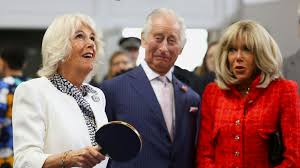The Influence of Brigitte Macron: Emmanuel Macron’s Wife

Introduction
The role of a president’s spouse often goes beyond traditional expectations, and this is certainly true for Brigitte Macron, the wife of French President Emmanuel Macron. Since their marriage in 2007, Brigitte has been a significant presence in French politics and public life, breaking stereotypes and engaging in various social issues. Her influence is crucial as the couple navigates the challenges faced by France in the contemporary political landscape.
Brigitte Macron: Background and Rise
Brigitte Macron, born Brigitte Trogneux, hails from a prominent family with a long history in the chocolate business in Amiens, France. She worked as a literature and drama teacher before entering the political arena alongside her husband. Their unique meeting—when Emmanuel was just 15 and she was his drama teacher—has often been highlighted in the media, setting the stage for a compelling love story that has captured public attention.
Role as First Lady
Assuming the title of First Lady in May 2017, Brigitte Macron has actively participated in numerous social initiatives. Her prominent focus areas include education, culture, and youth issues, reflecting her background as an educator. Brigitte has launched several campaigns aimed at improving literacy and supporting cultural heritage in France. Additionally, she has been involved in discussions surrounding public health issues, such as mental health and disability rights, further establishing her as a potent advocate for social change.
Public Perception and Challenges
Brigitte Macron’s public image has not been without its challenges. While many admire her for her modern approach to the role, others have scrutinized her age difference with Emmanuel Macron, considering it unconventional. Despite the mixed reactions, she has demonstrated resilience, and her style, confidence, and engagement have endeared her to many. In recent months, Brigitte’s work has gained importance, especially as France continues to grapple with issues like climate change, inequality, and immigration.
Conclusion
Brigitte Macron embodies a new kind of first lady—one who is actively involved in societal issues and becomes a beacon of change. As the political landscape in France evolves, her role will likely expand. Observers and citizens alike will continue to watch her contributions, which may prove significant in shaping France’s social policies and public attitudes. Whether through her advocacy for education reform or her compassionate outreach, Brigitte’s influence is set to leave a lasting mark on both her husband’s presidency and the nation as a whole.









